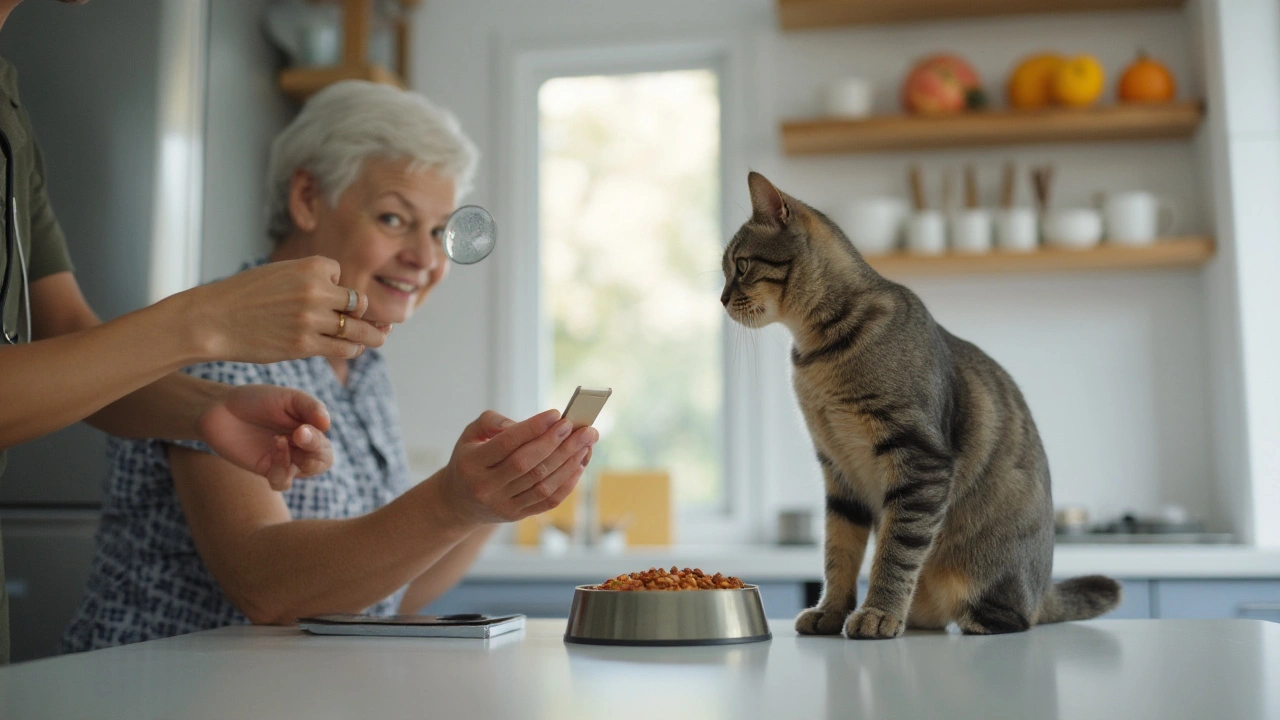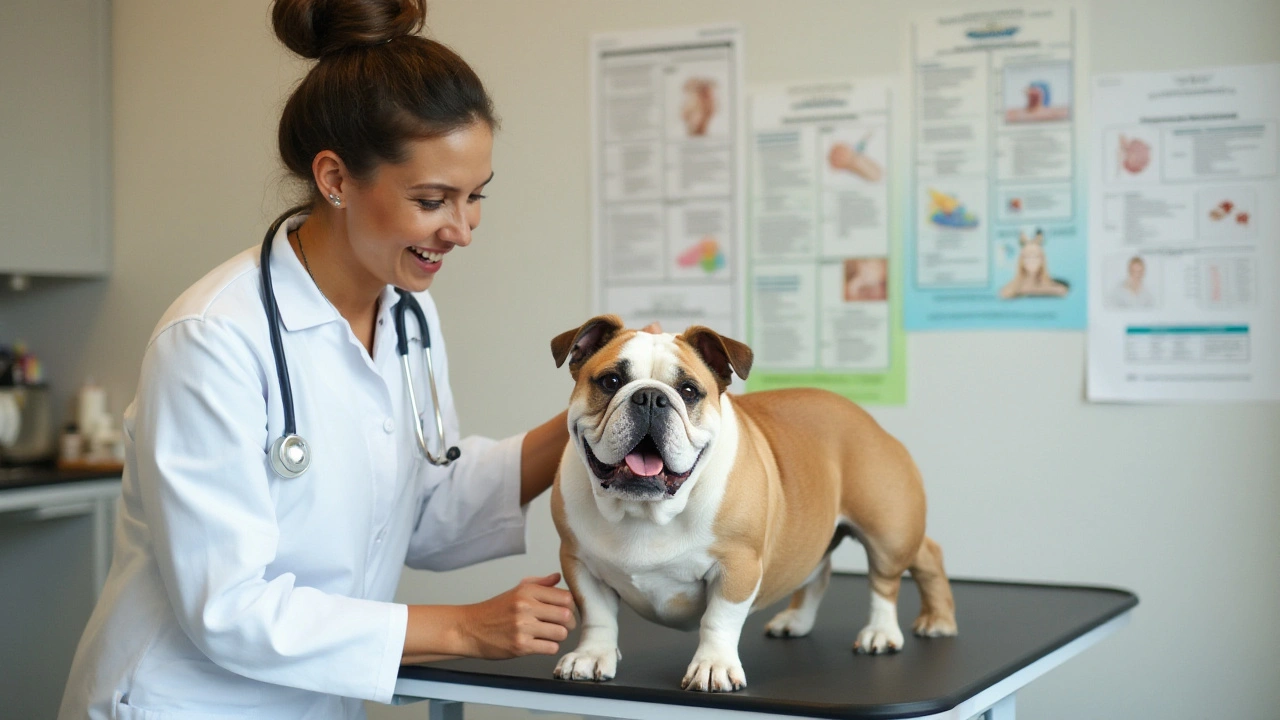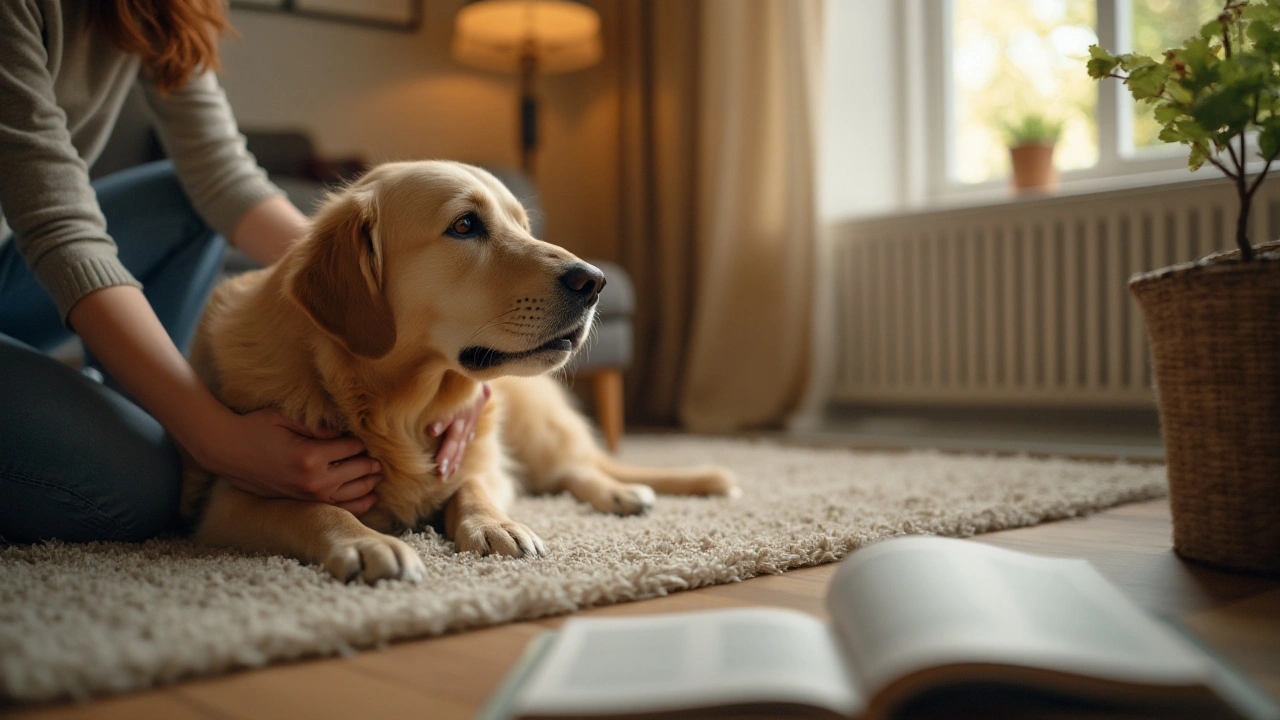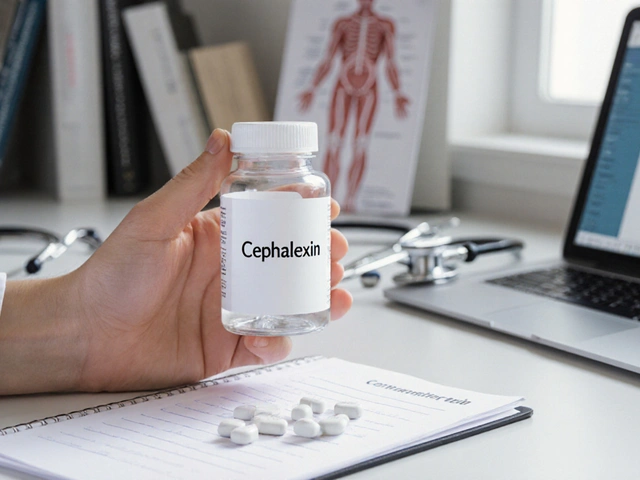Gastroenteritis can be a troubling condition for pets, causing significant discomfort and potential health risks. Ensuring you are well-informed about this ailment can help you provide the best care for your furry friends.
Gastroenteritis is an inflammation of the gastrointestinal tract, encompassing both the stomach and intestines. This condition can affect cats and dogs alike, leading to symptoms such as vomiting, diarrhea, and general malaise.
Being vigilant about your pet's health and recognizing the signs early can make a considerable difference in their recovery. From understanding the causes to offering preventive measures, this article aims to be a comprehensive guide for all pet owners.
Understanding Gastroenteritis
When it comes to the health of our furry friends, one condition that can be particularly distressing is gastroenteritis. This ailment is essentially an inflammation of a pet's gastrointestinal tract, affecting both the stomach and the intestines. Symptoms may range from mild discomfort to severe distress, making it crucial for pet owners to understand the intricacies of this condition.
Gastroenteritis in pets is often manifested through persistent vomiting and diarrhea. While these symptoms alone may seem common, when they occur together or frequently, they can be a sign of a more severe underlying issue. It's important to note that gastroenteritis can affect all pets, irrespective of their breed or age. However, younger pets and older animals tend to be more susceptible to the condition due to their weaker immune systems.
Interestingly, the causes of gastroenteritis can be quite varied. In many cases, it can be traced back to dietary indiscretion—simply put, pets eating something they shouldn't. This could be anything from spoiled food to toxic plants. In other instances, the cause may be infections from bacteria, viruses, or parasites. Stress and sudden dietary changes can also contribute to the onset of gastroenteritis in pets. As a pet owner, observing and noting any changes in your pet's eating habits and overall behavior can be key in early detection.
Speaking of early detection, it's critical to understand the symptoms that accompany gastroenteritis. Apart from vomiting and diarrhea, pets may exhibit signs of lethargy, a noticeable decrease in appetite, and signs of abdominal pain such as whining or unusual postures. Dehydration is another major concern, especially if the vomiting and diarrhea are severe. Severe dehydration can quickly escalate into a critical situation and requires immediate veterinary attention.
Effective treatment for gastroenteritis usually involves addressing the underlying cause and providing supportive care to help the pet recover. This often means withholding food for a short period to allow their gastrointestinal tract to rest, followed by reintroducing a bland diet gradually. Hydration is another key component, and in severe cases, subcutaneous or intravenous fluids may be necessary to prevent dehydration. Left untreated, gastroenteritis can lead to complications such as severe dehydration, electrolyte imbalances, and even sepsis, a life-threatening condition.
According to Dr. Sarah White from the Australian Veterinary Association, "Prompt action and early veterinary intervention are crucial in treating gastroenteritis effectively. The earlier the condition is identified, the better the prognosis for the pet."Her insight underscores the importance of vigilance and timely care for pets showing signs of gastroenteritis. It's not just about treating the symptoms but also understanding and addressing the root causes to prevent recurrence.
In conclusion, understanding gastroenteritis means recognizing the thin line between common pet ailments and serious health concerns. By staying informed and attentive to our pets' needs, we can help ensure their well-being and long-term health. Regular check-ups with the vet, a balanced diet, and a safe environment can go a long way in keeping conditions like gastroenteritis at bay. Taking these steps can help our pets lead happier, healthier lives.
Symptoms to Watch For
When it comes to spotting gastroenteritis in your pets, being observant and aware of the symptoms is crucial. This condition can sneak up, sometimes mimicking less serious health issues, which makes it important to know the tell-tale signs.
Common symptoms of gastroenteritis include frequent vomiting and diarrhea. These symptoms often lead to dehydration, which can be particularly dangerous for pets, especially smaller breeds and older animals. If your dog or cat is throwing up multiple times a day or having loose stools, it’s likely more than just a minor tummy upset.
Another key symptom is a noticeable lack of energy. Pets suffering from gastroenteritis will often appear lethargic and might shy away from their usual activities, whether it's playing, walking, or just engaging with their favorite humans. An unwillingness to eat or drink is also a red flag. If your pet refuses their food or water for more than 24 hours, it is time to consult your veterinarian.
Additionally, you might observe signs of abdominal pain or discomfort. Your pet might adopt unusual postures, like hunching their back or lying flat on their stomach for extended periods. Yelping or crying when touched in the stomach area can also indicate distress in their gastrointestinal tract.
Keep an eye on their bathroom habits. Straining to defecate or noticeable discomfort during bowel movements can be an indication of gastrointestinal inflammation. Sometimes, you may notice traces of blood in their stool or vomit, which is a serious symptom requiring immediate veterinary attention.
For pet owners, another clue can be the overall appearance of their pet. Rapid weight loss and a decline in grooming habits, especially in cats, are also indicators that something might be wrong. Bad breath, often stemming from accumulated waste products in the bloodstream due to vomiting and diarrhea, is another symptom of gastroenteritis.
Lastly, always trust your instinct. If your pet looks unwell, is excessively drooling, or seems unusually quiet and withdrawn, it's better to err on the side of caution. In the words of veterinarian Dr. Jane Bicks, “Pets don’t hide their problems as well as we think. If something seems off, it most likely is.”

Common Causes
One of the key steps in protecting your pets from gastroenteritis is understanding what can cause it. Knowing the primary triggers allows pet owners to keep a closer watch and take preventive measures. Many factors might contribute to the development of gastroenteritis in pets, ranging from dietary indiscretions to harmful bacteria and parasitic infections.
A frequently encountered cause is the ingestion of spoiled food or non-food items. Pets are naturally curious and might consume something they find interesting but can severely disrupt their gastrointestinal system. Examples include leftover food, garbage, or even foreign objects like small toys and clothing.
Another prominent factor is bacterial infections. Common bacteria such as Salmonella and Escherichia coli (E. coli) can be found in contaminated water or food. These harmful bacteria can lead to severe cases of gastroenteritis, causing extreme discomfort and posing a potential danger to your pet's overall health. It's essential to ensure that your pet's food and water sources are clean and safe to consume.
Viruses also play a significant role in causing gastroenteritis. For instance, canine parvovirus (CPV) is a highly contagious virus affecting dogs, especially puppies. This virus attacks the gastrointestinal tract and can be deadly if not treated promptly. Similarly, cats can be affected by the feline panleukopenia virus (FPV), which also targets the digestive system and can have fatal outcomes if neglected.
"Prevention is always better than cure. Regular veterinary check-ups and maintaining good hygiene practices can significantly reduce the chances of your pet contracting gastroenteritis," says Dr. Jane Wilson, a renowned veterinarian from Sydney.
Parasitic infections are another common cause of gastrointestinal issues. Parasites such as Giardia and roundworms can be picked up from contaminated environments or through contact with infected animals. These parasites invade the intestines, causing inflammation and discomfort.
Finally, certain medications and substances can also contribute to gastroenteritis. Over-the-counter medications and human drugs should never be given to pets without veterinary approval. Some common household substances, like cleaning agents and certain plants, can be toxic if ingested, leading to irritation and inflammation of the gastrointestinal tract.
Understanding these common causes empowers pet owners to make informed decisions about their pets' care. By being aware of what can trigger gastroenteritis, you can take proactive steps to avoid these potential pitfalls. This vigilance goes a long way in ensuring your pets remain healthy and happy.
Treatment Options
When your pet is diagnosed with gastroenteritis, prompt and appropriate treatment is crucial. The first step in treating this condition often involves withholding food for 12 to 24 hours. This fasting period allows the digestive system to rest and recover from the irritation. However, it is essential to keep your pet hydrated. Provide small amounts of water or an electrolyte solution to prevent dehydration.
After the fasting period, you can gradually reintroduce food. Start with a bland diet that is easy on the digestive system. Boiled chicken or turkey mixed with plain white rice is often recommended and can help soothe your pet's stomach. Feed them small amounts of this bland diet every few hours, gradually increasing the portion sizes as they are able to tolerate it.
In some cases, your veterinarian may prescribe medications to help manage the symptoms of gastroenteritis. Anti-nausea drugs can help prevent vomiting, while antibiotics may be necessary if a bacterial infection is suspected. Probiotics may also be recommended to restore the balance of good bacteria in the gut, aiding in faster recovery.
If gastroenteritis is severe and your pet is unable to keep down liquids, hospitalization may be required. Intravenous fluids can be administered to ensure your pet remains hydrated, and additional medications can be given to control vomiting and pain. This level of care helps to stabilize your pet and leads to quicker recovery.
It's important to monitor your pet's progress closely during treatment. Keep an eye on their behavior, appetite, and bathroom habits. If you notice any worsening symptoms or if they do not improve within a few days, revisit the veterinarian for further evaluation. Early intervention is key to preventing complications and helping your pet recover fully.
Preventing gastroenteritis includes feeding your pet a balanced diet and avoiding sudden changes in their food. Always provide fresh water, and keep an eye on what they might scavenge during walks. Pets can be curious creatures, and ingestion of spoiled food, foreign objects, or toxic substances often leads to gastrointestinal upset.
In some situations, diagnostic tests such as blood work, fecal examinations, or imaging studies like X-rays or ultrasounds may be necessary to determine the underlying cause of the gastroenteritis. These tests help rule out more severe conditions like pancreatitis, intestinal blockages, or infections that may require specific treatments.
"Treatment should be tailored to each individual. Early and accurate veterinary diagnosis ensures the best outcome," advises Dr. Emily Thompson from the Pet Health Institute.
Overall, meticulous care and a proactive approach to treatment can make a world of difference in your pet's recovery from gastroenteritis. Staying informed and working closely with your veterinarian will help your beloved companions get back on their paws swiftly.

Prevention Tips
Preventing gastroenteritis in pets requires a combination of good hygiene, mindful feeding practices, and regular veterinary care. As a pet owner, you hold the keys to your pet's well-being. Here are some practical tips to help keep your furry friends healthy and happy.
First and foremost, maintaining good hygiene is essential. Always ensure that your pet's living and eating areas are clean. Regularly wash their food and water bowls to prevent the build-up of bacteria. Keeping their environment tidy also means promptly cleaning up after they defecate, which helps minimize exposure to harmful pathogens.
Diet plays a pivotal role. Only feed your pets high-quality, well-balanced diets that are appropriate for their species and age. Avoid giving them human food, as it can sometimes contain ingredients that are toxic to animals. Instead, opt for commercial pet foods that meet nutritional standards or prepare a home-cooked diet with guidance from your vet. Ensure that all food is stored properly and discard any expired or spoiled items immediately.
While it might seem harmless, giving your pet table scraps or letting them scavenge can lead to serious health issues. Always keep an eye on what your pets eat, both indoors and outdoors. It's also wise to refrain from feeding them raw or undercooked meat unless advised by your veterinarian, as these can be sources of harmful bacteria and parasites.
Regular veterinary check-ups are indispensable. Schedule routine visits with your vet to keep track of your pet's health. These check-ups are crucial in detecting potential health problems early, including signs of gastroenteritis. Make sure your pets are up-to-date on their vaccinations and follow a parasite control program as recommended by your vet.
Another important aspect is managing stress. Pets, much like humans, can suffer from gastrointestinal issues when they are stressed. Stressors can range from changes in their home environment to loud noises or the introduction of new animals. Create a calm and secure space for your pets to relax and feel safe. Engage them in regular physical activities and mental stimulation to keep them happy and reduce stress.
Finally, knowledge is power. Familiarize yourself with the common symptoms of gastroenteritis, like diarrhea, vomiting, and lethargy. Early detection can make a significant difference in the effectiveness and speed of treatment. If you notice any of these signs, do not hesitate to contact your vet for advice.
As the renowned veterinarian Dr. Jane Bicks once said,
“An ounce of prevention is worth a pound of cure. Take proactive steps to ensure your pet's health, and you'll both enjoy a happier, healthier life together.”Remember, your diligence in preventing gastroenteritis in pets can greatly enhance their quality of life and save you from future complications and expenses.





Ganesh Kamble
September 10, 2024 AT 12:33bro this article is just a glorified vet ad. i’ve had two dogs with gastro stuff and all they needed was 24 hours of fasting and some pumpkin. no fancy tests, no hospitalization. just let them chill and stop feeding them human food. why do people overcomplicate everything
Jenni Waugh
September 11, 2024 AT 03:50Oh. My. God. Another ‘pet care’ piece that treats dogs like fragile porcelain dolls. You know what causes gastroenteritis? Humans. Humans who feed their dogs pizza crusts, humans who let them eat garbage, humans who think ‘natural’ means ‘unregulated toxic herbs.’ This isn’t a mystery-it’s negligence dressed up as concern. If your pet is sick, it’s probably because you’re a lazy caregiver. Get a clue. Or better yet, get a new pet.
Theresa Ordonda
September 13, 2024 AT 00:07Okay but like… have y’all seen the *ingredients* in some of these ‘premium’ pet foods?? 🤢 I switched my cat to grain-free and her poops went from ‘mystery sludge’ to ‘perfect little logs’ 🐱✨. Also, don’t even get me started on raw diets-yes they’re ‘natural’ but if your cat eats a mouse with giardia, you’re not a pioneer, you’re a liability. 🚨 Vet check-ups = non-negotiable. No buts. #PetHealthFirst
Judy Schumacher
September 14, 2024 AT 04:39It is, without a shadow of a doubt, an egregious oversight in contemporary pet ownership that the general populace continues to treat gastrointestinal distress in companion animals as a trivial, self-resolving phenomenon. The systemic failure to recognize the profound biological implications of dietary indiscretion-particularly in light of the documented prevalence of zoonotic pathogens such as Campylobacter jejuni and Clostridioides difficile-represents a catastrophic lapse in ethical stewardship. One cannot, in good conscience, permit a creature dependent upon one’s judgment to ingest rotting chicken or plastic packaging and then expect a favorable outcome. The responsibility is not merely moral-it is biochemical. And if you are reading this and have not yet consulted a board-certified veterinary internal medicine specialist, you are, in effect, complicit in your pet’s suffering.
Megan Raines
September 15, 2024 AT 23:54So… you’re telling me the solution to vomiting and diarrhea is… wait for it… don’t let them eat garbage? Shocking. I mean, who knew? 😏 Also, I’m just curious-how many of these ‘preventive tips’ are just ‘stop being a bad owner’ in fancy words? Like… maybe the real problem isn’t the pet, it’s the person who thinks a 2am dumpster dive is a good idea.
Mamadou Seck
September 17, 2024 AT 18:15lol i had a dog that ate a whole turkey leg off the counter and threw up for 3 days but kept wagging his tail like nothing happened. vet said just water and rice for a week. no big deal. why do we need all this fancy science when the answer is just don’t let them eat trash